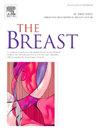RSClin是否提供了经典临床病理评分(PREDICT 2.1, INFLUENCE 2.0, CTS5)之外的额外信息?
IF 7.9
2区 医学
Q1 OBSTETRICS & GYNECOLOGY
引用次数: 0
摘要
目的:很少有研究将基因表达谱测试(如Oncotype-Dx)与临床病理风险计算器(如PREDICT 2.1、INFLUENCE 2.0和CTS5)或两者结合的工具(如RSClin)在早期乳腺癌(EBC)患者中的表现进行比较。一个大型试验数据集用于评估基于患者结果的不同测试的预后表现。方法TEAM病理队列从4736例绝经后激素阳性的EBC妇女中收集样本,依西美坦或他莫昔芬治疗后再用依西美坦治疗。oncotype - dx训练的风险评分以前是通过基因表达谱生成的。患者资料用于计算各种复发评分。分析仅限于N0/N1人群,使用Cox回归分析和Harrell’s c统计量评估所选风险工具的预后能力。结果2065例患者获得结果。PREDICT 2.1 (r = -0.12)、INFLUENCE 2.0 (r = 0.20)、CTS5 (r = 0.16)与oncotype - dx训练结果的相关性较低。在0例患者中,与PREDICT 2.1(0.60)、INFLUENCE 2.0(0.57)、CTS-5(0.62)和Oncotype-Dx(0.63)相比,RSClin对DMFS的预后能力(c -统计量= 0.66)有所改善。结论分子因素与临床病理因素相结合可提高预后信息。然而,这对实际患者管理的影响需要进一步的前瞻性验证。该试验已在clinicaltrials.gov注册NCT00279448和NCT00032136;荷兰试验登记册,编号NTR 267;以及道德委员会审判,第27/2001号。本文章由计算机程序翻译,如有差异,请以英文原文为准。
Does RSClin provide additional information over classic clinico-pathologic scores (PREDICT 2.1, INFLUENCE 2.0, CTS5)?
Purpose
Few studies have compared the performance of gene-expression profiling tests (e.g. Oncotype-Dx) to clinico-pathologic risk calculators (e.g. PREDICT 2.1, INFLUENCE 2.0, and CTS5) or tools that combine both (e.g. RSClin) in patients with early breast cancer (EBC). A large trial dataset was used to evaluate the prognostic performance of different tests based on patient outcomes.
Methods
The TEAM pathology cohort accrued samples from 4736 postmenopausal hormone positive women with EBC, treated with either exemestane or tamoxifen followed by exemestane. Oncotype-Dx-trained risk scores were previously generated by gene-expression profiling. Patient data was used to calculate various recurrence scores. Analysis was restricted to the N0/N1 population and prognostic ability of selected risk tools was assessed using Cox regression analysis and Harrell's C-statistic.
Results
Results were available for 2065 patients. There was low correlation between PREDICT 2.1 (r = -0.12), INFLUENCE 2.0 (r = 0.20), CTS5 (r = 0.16) with Oncotype-Dx-trained results. In N0 patients, RSClin had improved prognostic ability (C-statistic = 0.66) on DMFS compared to PREDICT 2.1 (0.60), INFLUENCE 2.0 (0.57), CTS-5 (0.62), and Oncotype-Dx (0.63).
Conclusion
Combining molecular and clinico-pathologic factors enhances prognostic information. However, the impact of this on actual patient management requires further prospective validation.
The trial is registered with clinicaltrials.gov NCT00279448 and NCT00032136; with Netherlands Trial Register, number NTR 267; and the Ethics Commission Trial, number 27/2001.
求助全文
通过发布文献求助,成功后即可免费获取论文全文。
去求助
来源期刊

Breast
医学-妇产科学
CiteScore
8.70
自引率
2.60%
发文量
165
审稿时长
59 days
期刊介绍:
The Breast is an international, multidisciplinary journal for researchers and clinicians, which focuses on translational and clinical research for the advancement of breast cancer prevention, diagnosis and treatment of all stages.
 求助内容:
求助内容: 应助结果提醒方式:
应助结果提醒方式:


